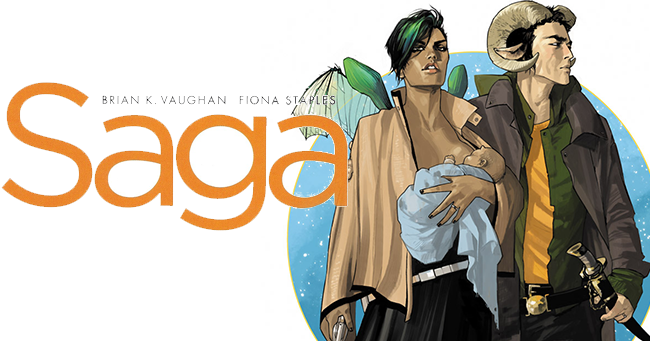
This is the first in a planned series of articles about the “Image Effect.” Over the past 20+ years Image Comics has grown from a vanity publisher for the top talents of the 90s into a trendsetter and home to a diverse range of popular titles and creators. How did they accomplish that? Image’s well-known zero ownership stake in the non-publishing rights of their titles is probably a huge component, but another cause is their laid back management style. Image, particularly the Image Central publishing house run by Eric Stephenson, essentially just lets its creators create, without setting too many guidelines for them to follow.
One of the things Image doesn’t require on their series that many other publishers do is an editor. For example, Saga, one of Image’s most popular books, doesn’t have anyone credited in that role. Editors on titles at Image have become more common in recent years, likely due in large part to more creators having the funds to hire them. For example, Sean Mackiewicz edits Image’s most high-profile comic series The Walking Dead, David Brothers edits titles like Lazarus and Wytches and Nicole Boose edits the Millarworld books. But it’s significant that editors on Image titles remain completely optional.
That new choice creators have begs the question of how the role of the editor has shifted since Image has started finding such massive success. Through some research and interviews with talent involved with both Image and the Big Two I learned some things out about the role of editors in the comic book industry. Here are my findings.
Editors are doing their jobs mainly out of a love for comics
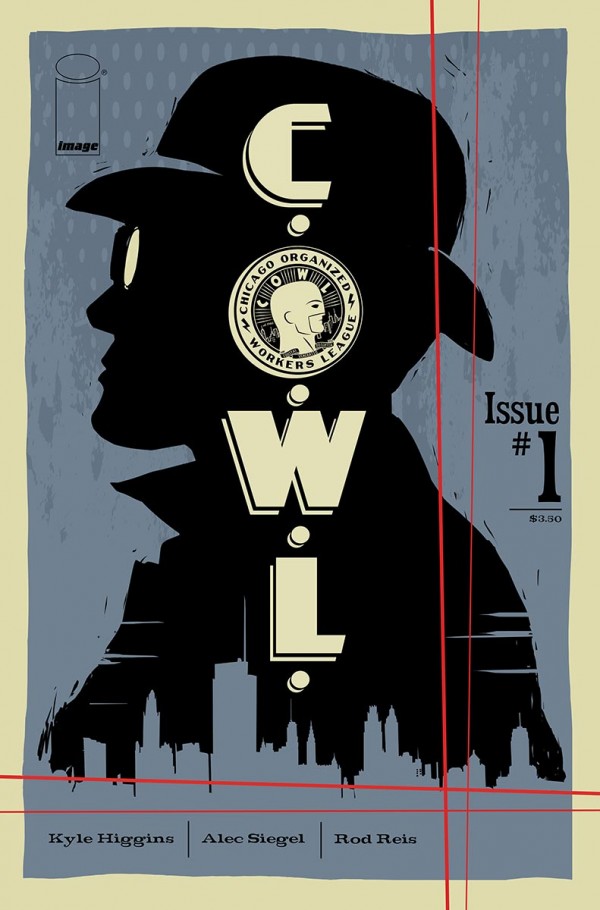
This probably isn’t a surprise to many. I remember this belief being cemented in my brain when attending a panel at NYCC, during which Scott Allie (Dark Horse) and Filip Sablik (BOOM! Studios) wholeheartedly agreed/commiserated that they weren’t in comics for the money. My interview with Andy Schmidt, former Marvel and IDW editor as well as freelance editor of the Image series C.O.W.L., was also very enlightening. He said:
“The majority of those in the comic industry working in editorial are overworked. That’s in part because of the original demands of the job, but we were partially responsible for overloading our own schedules because we were excited about the projects we wanted to do and we would pitch projects even if we didn’t have time for them in the normal 9-to-5 of it all.”
Comics are usually driven by passion of not just the creators but many other parts of the production line.
Editorial interference is often overstated
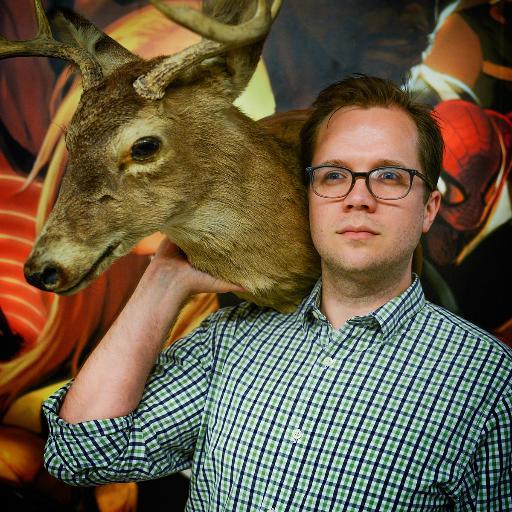
Even if they had the inclination to do so, most editors simply don’t have the time to fully rewrite a script. On July 23rd, senior Marvel editor Nick Lowe tweeted:
“Editor-Driven comics” cracks me up. Most I do is try and change the oil and maybe point at the map if there are bumps in the road.
Once the project is rolling, comic book editors often don’t have the time to do more than ask for tweaks and play traffic cop. The deadline for comics at the major publishers is frequently too demanding for editors to do much more than actually edit the books. In fact, as Schmidt mentioned above, they barely have time to do that.
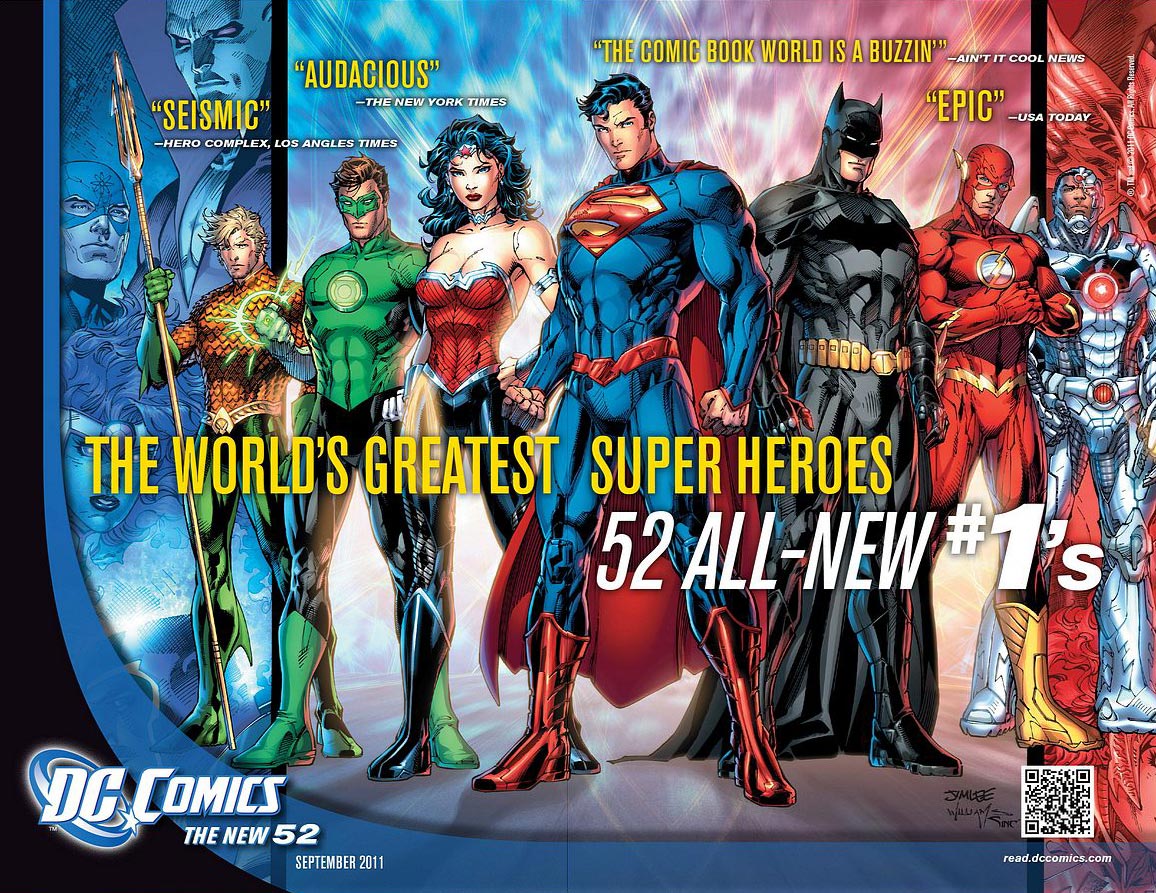
This isn’t to say there aren’t overbearing editors. There are. But even the editors that interfere more than creators would like might be doing so because they’re bound by mandates made higher up the ladder. The beginning of DC’s New 52 reboot famously saw an exodus of creators– mainly writers, but there were shifts in the editorial staff, as well.
A common theory is that many editors pigeonhole their creators because they’re frustrated writers who wish they were writing the books themselves. There’s truth to that, yes, but conflicts between the editors and their bosses is probably another major factor.
“The main role of an editor is to help make the project as good as possible while staying on time and within budget.”

This definition of an editor comes courtesy of Schmidt, and it seems like an apt one. It focuses on three key factors of production: quality, timeliness and cost to the publisher. Fans and creators would largely prefer the focus to be on quality, but financial realities force deadlines and budgets to play a role. At Image the creators have more control, which means that they can often take more time and spend more money to make a better product if they so choose. However, they still have to deal with the same realities as a publisher like Marvel or DC do. Just on a smaller scale.
The role of the editor is malleable
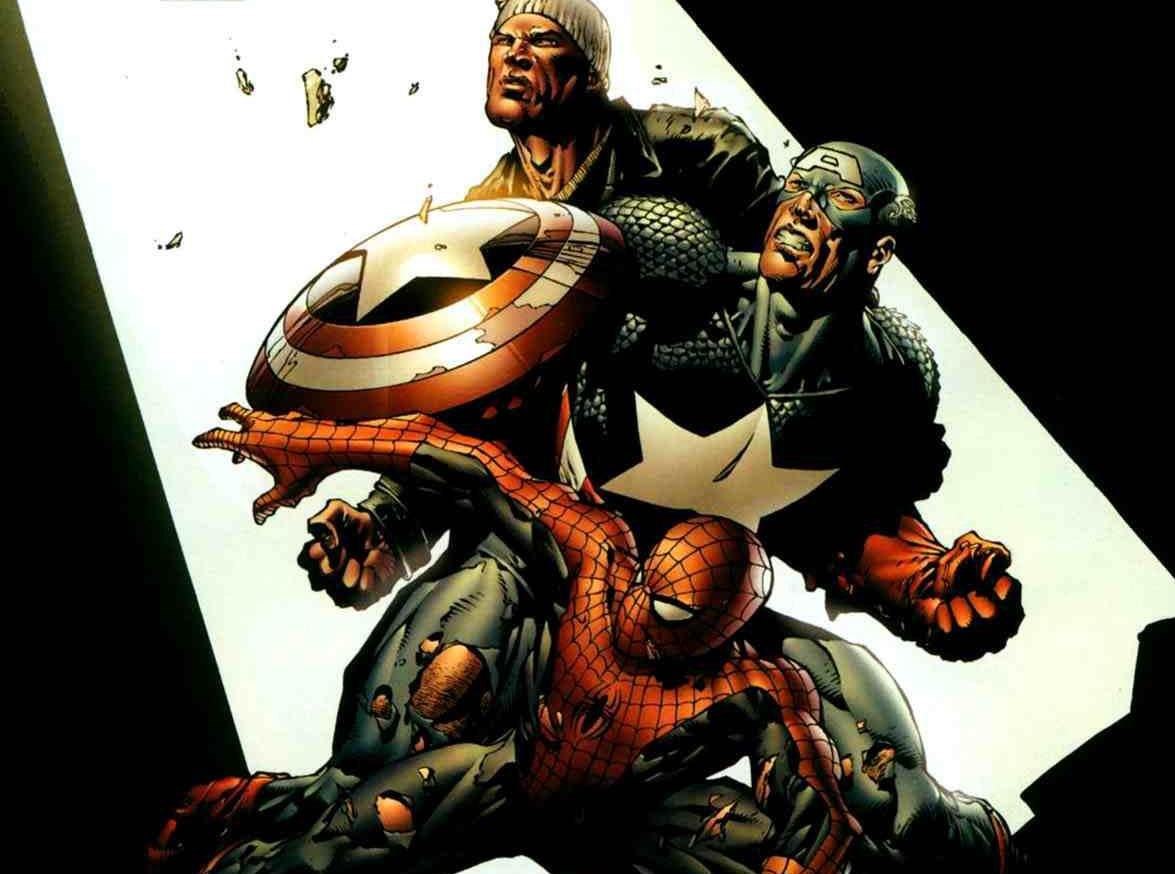
The role of an editor of comic books means different things for different publishers and different creative teams. Project management is always a priority, but the very definition of the term fluctuates. At publishers that license properties, character consistency is an important aspect of project management. At publishers like Image, realizing the creators’ vision might be more of a focus. Aside from the publisher, an editor’s role also changes based on who they’re collaborating with. Schmidt explains,
The first thing an editor has to figure out is how to work with specific creators. So, I didn’t edit any two projects exactly the same way. Editing New Avengers with Bendis and Finch wasn’t the same thing as editing New Avengers with Bendis and McNiven, even. So, the role is a malleable one. Some projects need more TLC than others. Some creators need more interaction than others. So, the role has always been one that evolves on a nearly daily basis. For me, that’s one of the things I like most about comics editing. I like that it never feels like the same old thing. Every project has something that feels new or some challenge that comes with it.
No two editing jobs are exactly the same, in regard to either working relationships or the different hats the editors has to wear.
Image creators sometimes take on some of the editors’ roles
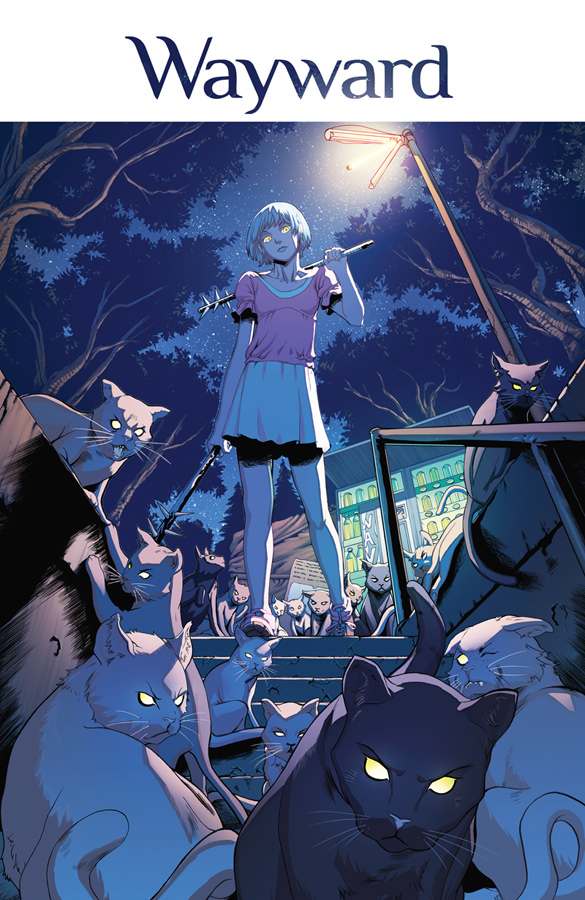
Jim Zub has explained in the past that he handles most of the production responsibilities for Skullkickers and Wayward. At Marvel or DC an editor or another staffer would probably take on those duties, but at Image that burden lies largely with the creators. Zub told me,
Unless you’re independently wealthy or have a breakout hit, creator-owned comics are a tightly run ship. As much as I’d love to have an editor on Skullkickers or Wayward I’m not able to afford it with our current production budget. In turn, the whole creative team helps act as proofreaders and gives input on each stage as we go through the production process. Image also has production staff that looks over each issue as it heads to print, pointing out any spelling/grammatical errors and major continuity gaffs.
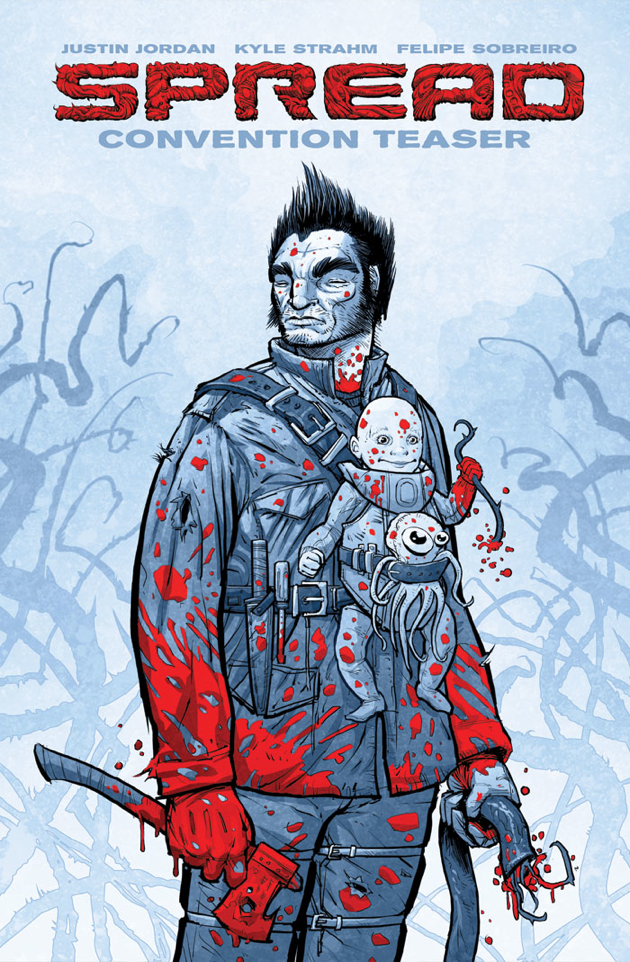
Justin Jordan said that the Spread team recently hired Sebastian Girner to handle project management, because that’s something that he doesn’t believe he does especially well and definitely doesn’t enjoy it. In the end, Image offers gives creators the prerogative to choose how duties such as project management get handled, one of many reasons a deal with them is such an enticing offer for many creators.
Most people need someone to look over their work
As Zub explained above, the whole creative team will often serve as a sort-of proofreaders to point out any mistakes or flaws. He also stated:
I also have a circle of close friends and fellow professionals I look to for input on my creator-owned writing. It’s not a standard editorial relationship, but it fulfills some of those functions, giving feedback and a fresh perspective on the work.
Understanding that people not already entrenched in the industry also need feedback, Andy Schmidt offers an online workshop called Comics Experience to connect writers and artists with a similar network of creators that will peer review each other’s scripts and art samples.
Jordan doesn’t really share his scripts with people outside of the creative team when working on Image titles like Luther Strode and Spread, but he readily admits that makes him an exception to the rule. In general, feedback prior to publication is crucial for creators if they want to deliver their best work.
The duties typically assigned to an editor will never go away
Schmidt says that it’s possible that editors could become rare on non-licensed properties, but he doesn’t know why that would happen for the same reasons that he doesn’t think inkers are going to disappear any time soon. In both cases, the work still needs to be done, even if no individual is tasked to solely that responsibility.
Even though editors aren’t mandatory at the biggest creator-owned publisher or used on some of the industry’s biggest titles, their roles will continue to play out. Their increased popularity on creator-owned titles, recently demonstrated by Mind MGMT editor Brendan Wright leaving Dark Horse to go freelance, shows that they remain highly in demand. And just because some series don’t have editors doesn’t mean the editing or project management goes undone. So it’s clear that the role of editors isn’t in any danger. If anything, in the wake of big creator-owned success, it’s thriving.



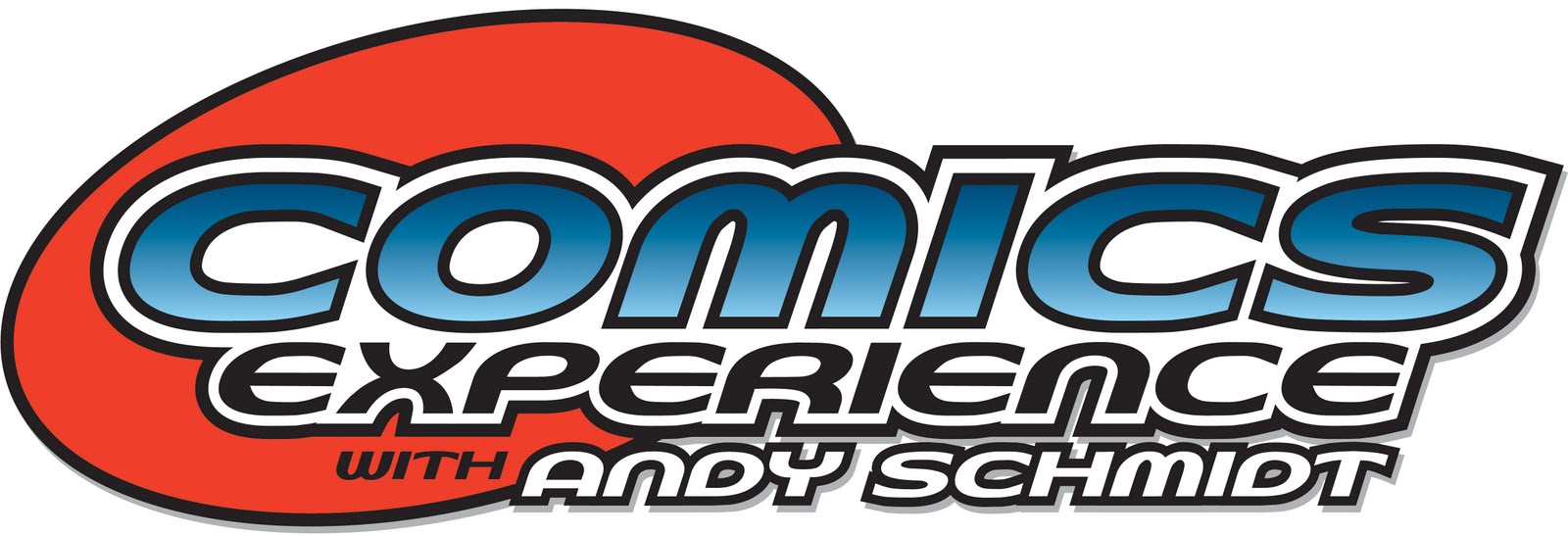
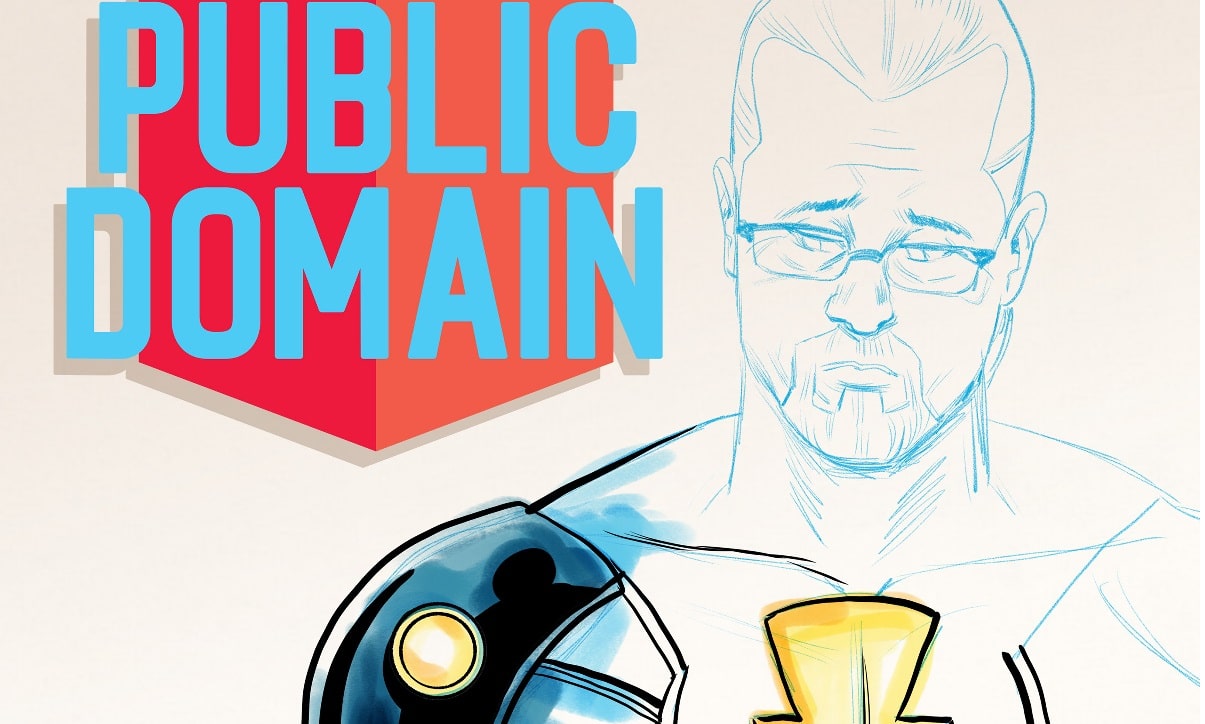
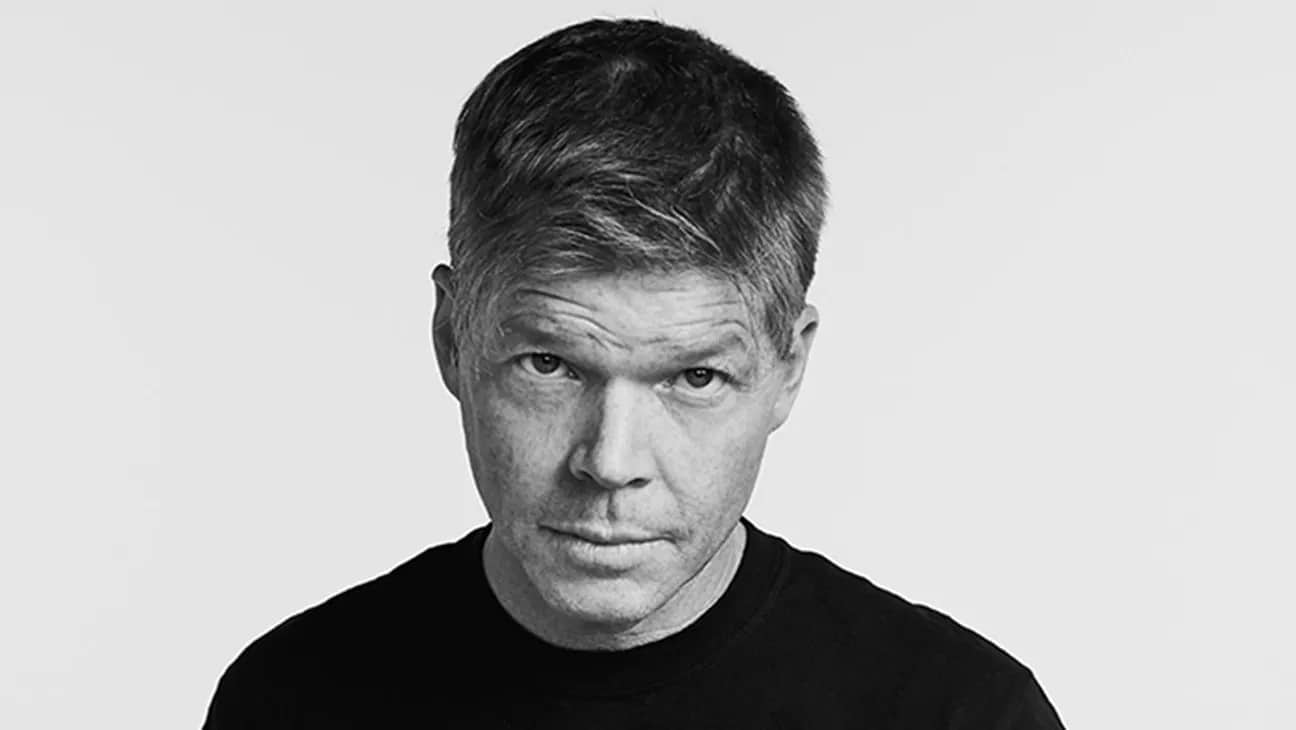
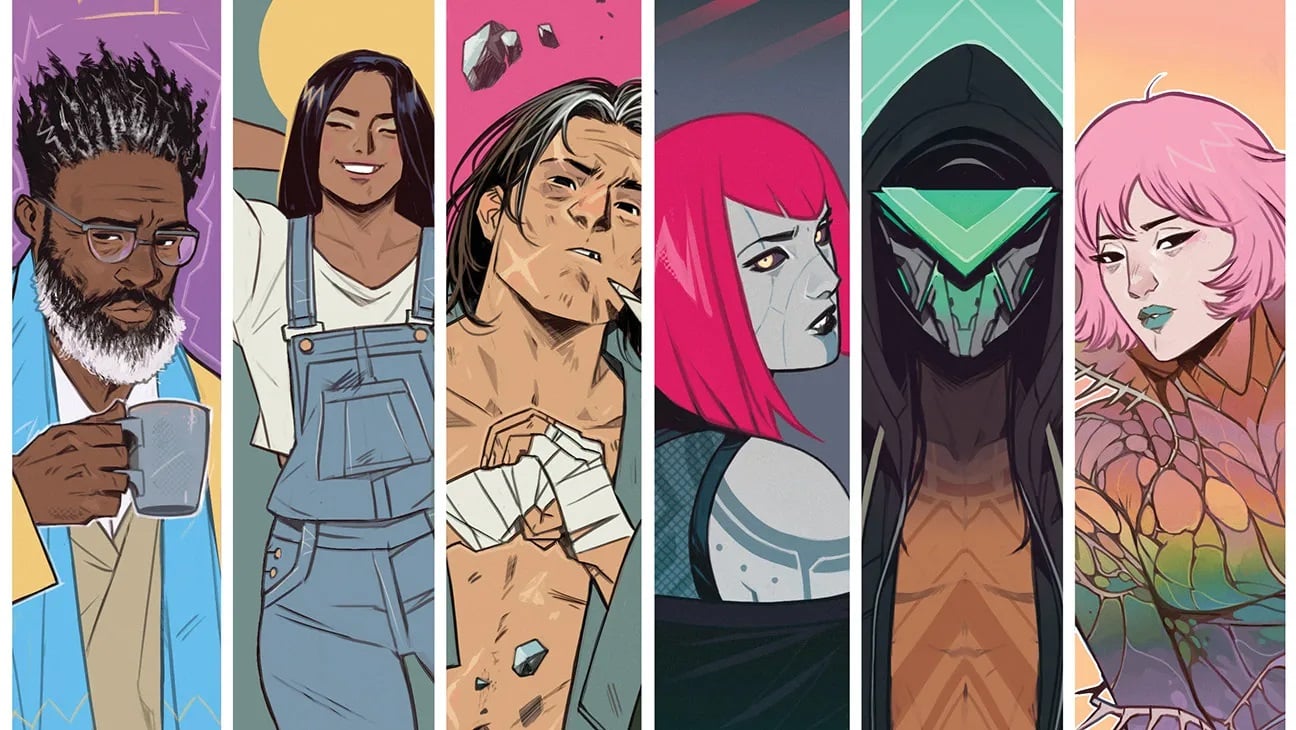


This is a great peek behind the curtain, thank you for this.
To work totally editor free is an awesome experience, to do whatever you want feels nice….. and scary.
the truth is I like working with editors, I learned a LOT working with them, When I was in Image, even Jim Valentino and Erik Larsen gave us great advice. Then with Scott Allie I learned (and keep doing so) great things and made me a better storyteller.
Having that outside eye is really important, and making changes are not a bad thing at all, we creators sometimes are so in love with what we’re doing that we cannot separate ourselves from our work to find the flaws, and an editor definitely can.
I think Editors will stay for as long as there are comics.
Editors thriving?
Hahahaha! Oh good one.
Good editors are often like good bartenders, to be friends and confidants, sounding boards and in some cases uncredited co-writers. Every creative team and project is different. Approach on a corporate owned project is completely different to a creator owned one. So many variables and you have to be able to handle all of them.
Like the big publishing houses, the comics editors have been viewed as not integral to the end product by the bean counters like Ike Perlmutter. Many traffic managers have been allowed to assume the ‘Editor’ title in lieu of a pay rise.
DC’s best editors were Archie Goodwin and Andy Helfer. Marvel had people like Ann Nocenti and Louise Simonson. Image don’t have any editors but they do have some great production people who read most of what they handle and pass on any mistakes they just happen to catch.
That’s not to say good editors aren’t at these companies but they’re usually overworked, underpaid, and told not to upset the talent by interfering.
Rewrite someone’s script? Most creators used to get the opportunity to rewrite their own unless they were unwilling to do what the publisher wanted or went awol (it happens), but if you don’t get the approval or acknowledgment of the creator good luck surviving the next month on social media.
Then there were the Marvel years where artists would get plots and then drew whatever they felt like drawing. Writer gets three or four issue ahead before he sees pencils to dialogue and can’t find his story in there beyond page three. Realizes his other scripts are now useless.
Ah, editors. Last out the office, first to be shit on.
What Dave Elliott said. Exactly.
Editors definitely seem to be underappreciated, which I explained in the article. But they’re increasingly in-demand amongst creators at publishers like Image, so in creator-owned comics at least I think their role is being held in a higher regard.
This post is terrible.
Dustin, be prepared to support your answer!
Reading article it seams that that today’s editors are simply focusing on production and financial matters rather than on the actual editing.
“Over the past 20+ years Image Comics has grown from a vanity publisher for the top talents of the 90s into a trendsetter and home to a diverse range of popular titles and creators. ”
I don’t think Vanity Publisher is an apt description of Image at it’s outset, unless of course you’re John Byrne. They’ve also been trendsetters, for better and worse, for most of the time since their inception.
Heidi this post needed… an editor. Backing up the “editorial interference is often overstated” subhead with a scoffing Nick Lowe tweet is not exactly digging into a topic. Nor is the rest of the post, which seems more like a long commercial for whatever Andy Schmidt is selling. Whatever the role of or possible need for editors might be in today’s comics landscape, I know exactly 0% more than I did when I started reading this, but I do know a ton more about Andy Schmidt. Andy Schmidt. Andy Schmidt!
“Many traffic managers have been allowed to assume the ‘Editor’ title in lieu of a pay rise.”
I’ll do you one better. Back in 2000, when I was writing licensed Marvel novels, Bill Jemas fired everyone in the licensing department and then made his personal assistant (who had no publishing background) the “editor” of the novel line. That turned out real well…
I’ve worked with good editors and bad, and while a bad one can make a project all kinds of no fun, a good one is invaluable. The lack of editors at Image is one of the things that has prevented me from pitching there. For me, it’s not a selling point.
Hi Dustin, as one of the editors of this post I stand by Matt’s coverage of the topic at hand. Admittedly, Matt’s conversation with Schmidt stands as one of the structural pillars for this piece, but his talk with Jim Zub is equally as informative.
Comics is a notoriously nebulous business to those on the outside looking in; a small club or as Devin Grayson put it, a jail. It’s possible that you already knew about everything discussed in the article– that’s fine, but that doesn’t mean the article is “terrible.” It just means that you aren’t the intended audience. There are plenty of people who don’t know the first thing about the business of comics because they’ve never thought about it or because they’ve been shut out from the jail. If we want comics to grow, that has to change. We have to start chipping away at the prison walls.
“Chipping away at the prison walls”???
This reply is as bad as the original post! If you want comics to grow — and who even knows what that old trite phrase means anymore — then start with better writing, more challenging writing, and a deeper look into things than one guy’s sales pitch for his editor course. I’m sure the writer of this article is a swell person, just like I’m sure you are, but when *I* think about comics growing, I think about wanting less of this kind of gladhanding comics “journalism,” and if at all possible NO references to chipping away at the prison walls.
My introduction to the first EGOs trade paperback (QUINTESSENCE) concerns exactly this issue. When I embarked on a project for Image, I deliberately chose the title Writer/Editor. In wrote, in part:
“When I got into reading comics, a lot of titles bore that credit—and many of them were among the best books on the stands. Roy Thomas’s CONAN and STAR WARS. Marv Wolfman’s SPIDER-MAN and, later, NEW TEEN TITANS. Len Wein’s GREEN LANTERN. Steve Gerber’s HOWARD THE DUCK. Gerry Conway’s FURY OF FIRESTORM.
And, of course, everything Stan Lee wrote in the ’60s.
…I’m writing a prose project right now that I could not have pulled off without my smart and helpful editor. It’s too complex, has too many requirements, and needs a lot of fine-tuning for all the pieces to fall into place.
EGOs, though, is quite literally a different story. I created it, and from the start, I knew how I wanted it to come across. I also had complete control over the story, so I could change details at will if necessary: powers, history, future tech.”
I mean, if editors can’t keep consistent creative teams on books, keep books shipping on time, or avoid continuity editors, yeah, they are pretty worthless.
I thought Andy Schmidt offered interesting insight BECAUSE he’s had a lot of experience editing comics for many publishers as well as running a workshop that encourages feedback for people who can’t afford an editor. I disagree that mentioning Comics Experience once makes it an advertisement.
I thought it was an interesting topic that I could give an overview of with the help of some comic professionals, and a good chance to spotlight some of the great work editors do. I’m happy it at least got people talking. I appreciate the feedback, and am happy to talk to anyone who wants to discuss the subject further, either here or on Twitter @Matt_OKeefe.
“I mean, if editors can’t keep consistent creative teams on books, keep books shipping on time”
Actually, you’ve got three choices: monthly book, consistent creative team, shipping on time. You only get two. That’s not an editing fail, that’s a demands of the business fail.
I have not installed a like button on the comments here but if I had I would like both Matt’s and Justin’s.
@ Justin – how is it a demand of the business? Additionally, I never said anything about monthly. I don’t really care what the schedule is, as long as the schedule is abided by.
As I’m rather new to the world of comic books ( 4 years tops) I found this article to be informative and enlightening read about the most controversial position in the comic book world (at least according to the comments all over the internet ), thank you Matt! It is always interesting to see behind-the-scenes, and especially about such an interesting publisher as Image, which, as of now, has become my favourite provider of comicbook entertainment. As majority of casual comic book readers I had started with The Big Two, and DC turned out to be more to my liking, but As the time went on, and accordingly amount of read comics also, I just got used to them and basically there was no thrill to it (in general, as there always will be a case of something-that-caught-the-eye), but then I discovered Image and a whole new world of original stories (that could be very well adopted into a movie or have a full fledged book on their own), and no capes in sight! For me this publisher basically redefined what a comic book can be!
Thank god for Image Comics and the ability to produce work without an agent or an editor. And if one wants an editor then that is fine but the notion that one should be mandated chips away at the money pie that is your property. A person doing it all can sell 4000 copies a month and do quite well. But as you add more folks then the number of copies sold must go up as the pie is shared.
Proof-readers are a great tool/resource and far cheaper than “editors” and many qualified folks are available at local 4-year colleges or community colleges.
I worked law enforcement for 14 years and understand the importance of teamwork and have commendations to prove it, however if I have created written and drawn the comic I will not stand for having a mandated editor. It should be my option and my option exclusively.
Thanks for the article and an editor being “suggested” is a great idea but one being” mandated” smears my libertarian streak.
Misleading headline, good article, if a bit limited in scope. Much of this conversation is about editing ongoing series with comics publishers. Editing graphic novels and/or working with trade publishers is a related but different set of issues. Which is why I’m very content to do all three.
Comments are closed.